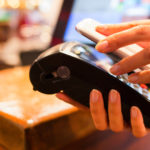The end of money in cash?
Cash is by far the most used payment channel in the world, although in the digital age, smartphones aspire to be our new wallet.

"Cash is expensive, dirty, not very trustworthy and doesn't provide public income" This is how Mehmet Sezgin, head of BBVA payment channels, categorically defended the Wallet mobile payment system in this interview in July. A year earlier, Francisco Gonzalez, president of BBVA, declared in the Financial Times that: "Banks that aren't prepared for new competitors such as Google, Facebook and Amazon are facing sure death".
Europe seems to opt for cash: Denmark has launched an electoral proposed plan to put an end to physical money in many everyday transactions made by citizens. The Nordic country aims to finish up with plastic money in clothes stores, gas stations and restaurants. With 5.6 million inhabitants, Denmark says that it will stop minting coins in 2016. One out of every three inhabitants already usesMobilePay, the DanksBank application that lets users digitally transfer money to other phones or accounts.
Sweden is also working intensively in this race to achieve a cashless society, and according to The Royal Institute of Technology in Stockholm, it's close to becoming a society in which payments are made exclusively using virtual payment systems and it predicts that this situation will become a reality in 2030.
Germany doesn't want to be left behind either. One of its wise economists, Peter Bofinger, had no qualms about classifying physical money as "outdated" in this interview in the Spiegel newspaper. "Notes and coins in Euros are obsolete and only reduce the influence of central banks. The federal government should abolish the use of cash. Taking into account the technical possibilities nowadays, notes and coins are outdated".
Bofinger went a step further: "If we get rid of money, the black market and the drugs market will come to an end. It will also be easier for central banks to fulfil their monetary policies". These ideas are shared by the former Treasury Secretary of the United States, Larry Summers, and economist Kenneth Rogoffque, who points towards cash as the main cause behind tax evasion.
The entrance of cell phones in payment systems
Cell phones are the tool to put an end to notes and coins, explained Mehmet Sezgin in El País: "We are moving towards a cashless society. We want to move from coins to cards, and from cards to the so-called cashless society. It's not an easy evolution, but we think that cell phones are one of the best ways to execute this transformation. A smartphone is basically a computer, which means that each of our customers has a computer in their pocket. Phones are the best way to digitalize, not just cash, but also cards. As with the chip technology, European banks have once again taken the initiative. Mastercard and Visa have already said that in 2020 all point of sale terminals will have contactless services. This means that you could pay with your phone and you won't have to ever use plastic money again". +
Following on with this idea, The Payment Channels report, a moving landscape, prepared by the PwC e IE Business School Financial Sector Centre classifies cell phones as "predators": Since they started becoming popular in the '90s, mobile devices have acted as digital predators because, to a greater or lesser extent, they have replaced photographic cameras, computers, books, newspapers, music players, radios, televisions, watches, board games and calculators, and it's possible that they'll end up doing the same thing with cash".
And it stresses: "New payment channels will gradually replace conventional methods and there will come a time when almost all transactions will be conducted online, especially through mobile devices. Smartphones will become wallets. They will replace computers for online purchases and will put an end to physical cards for transactions in stores. It's a radical and inevitable change, similar to that represented by the appearance of cards, but it will be more gradual. Partly because the new payment channels suffer from dispersion, insufficient information, limited incentives for use and a lack of leadership from the agents".
A slow and long road, since: "Cash is by far the most used payment channel in the world. According to approximate estimates, 85% of transactions and 60% of their value are made with cold hard cash".
To put an end to this supremacy, the study states that: "Wallets, or mobile purses, are one of the payment channels with the greatest projection, due to their easy usability and their adaption to the smartphone ecosystem. Some think that in the not so distant future, people could leave their house without their wallet; just their phone."
This is a goal that both governments and banks have been relentlessly pursuing in recent years.